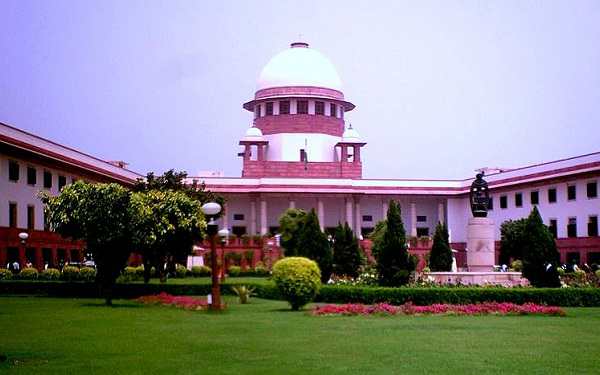Update (31 December 2014): The President of India has today given his assent to the Constitution (121st Amendment) Bill, 2014. So, now it becomes a regular Constitutional Amendment. National Judicial Appointments Commission now becomes a reality.
*****
The process of appointment of judges to the Supreme Court and the High Courts is likely to change soon. The National Judicial Appointments Commission (NJAC) is likely to become a reality within next about a month or so. The Constitution (121st Amendment) Bill, 2014, which was passed by the Parliament recently, has already been ratified by legislatures of 16 out of 30 states in India, which is more than half of the states (as on 27 December 2014), as required under Article 368 of the Constitution of India. Thus, the aforesaid Constitution Amendment Bill can now be sent to the President of India for his assent under Article 368 the Constitution, once the formal communication of ratification by the States is received by the Rajya Sabha.

This information was provided by the Union Law Minister Shri D.V. Sadananda Gowda, as reported by the Times of India. He also informed that the process of sending names for appointment has already been initiated. He was confident that by mid-January 2015, nearly 10-20% of the existing vacancies in the higher judiciary will be filled through the new process of appointments to higher judiciary through the National Judicial Appointments Commission.
It is noteworthy that as on 1 December 2014, 355 out of 984 posts (i.e., 36% of the total posts) of High Court judges in India were lying vacant. In the Supreme Court, at present, there are 3 vacancies in the posts of judges. A chart showing the current position of vacancies in the posts of High Court and Supreme Court judges is appended at the end of this article.
It is pertinent to point out that the NJAC consists of the Chief Justice of India who is its ex-officio chairman, two other senior most judges of the Supreme Court, the Union Law Minister and two eminent persons. These two eminent persons are to be appointed by a committee consisting of the Prime Minister, the Chief Justice of India and the leader of the opposition in Lok Sabha.
So, the collegium system of appointing judges to the higher judiciary, that was in existence for last about two decades, will now be replaced by the National Judicial Appointments Commission.
It may be noted that the aforesaid Constitution (121st Amendment) Bill, 2014, was introduced in the Parliament on 11 August 2014. It was passed by the Lok Sabha on 13 August 2014, and by the Rajya Sabha on 14 August 2014. However, this Bill was also required to be ratified by legislatures of at least half of the states in India, as per the provisions of Article 368 of the Constitution, after which it could be sent to the President of India for his assent thereto. The relevant clause (2) of Article 368 of the Constitution is reproduced below for a ready reference:
“(2) An amendment of this Constitution may be initiated only by the introduction of a Bill for the purpose in either House of Parliament, and when the Bill is passed in each House by a majority of the total membership of that House and by a majority of not less than two-thirds of the members of that House present and voting, it shall be presented to the President who shall give his assent to the Bill and thereupon the Constitution shall stand amended in accordance with the terms of the Bill:
Provided that if such amendment seeks to make any change in—
(a) Article 54, Article 55, Article 73, Article 162 or Article 241, or
(b) Chapter IV of Part V, Chapter V of Part VI, or Chapter I of Part XI, or
(c) any of the Lists in the Seventh Schedule, or
(d) the representation of States in Parliament, or
(e) the provisions of this article,
the amendment shall also require to be ratified by the Legislature of not less than one-half of the States by resolutions to that effect passed by those Legislatures before the Bill making provision for such amendment is presented to the President for assent.”
Since the aforesaid 121st Constitution Amendment sought to amend Chapter IV of Part V (relating to Union Judiciary, i.e., Supreme Court), Chapter V of Part VI (relating to the high courts in the States), therefore it was necessary to get this Amendment ratified by the legislatures of at least one half of the states in India. This process has now been completed, as the Union Law Minister has stated. Therefore, this Amendment can now be sent to the President of India for his assent thereto, after which the National Judicial Appointments Commission will become a reality. And, this is likely to happen within next about a month or so.
Statement showing the Approved strength, Working Strength and Vacancies of Judges in the Supreme Court of India and the High Courts, as on 1 December 2014, is reproduced below.
Supreme Court and High Court Judges Vacancy Position on 1.12.2014

